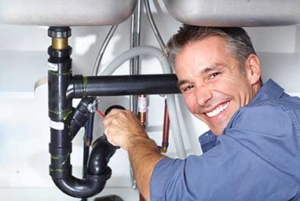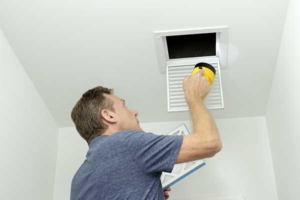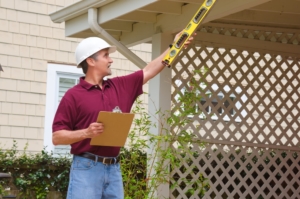What Do Home Inspectors Look For?
Understanding The Most Common Issues Found During Inspections
A home inspector is your best friend during the home buying process. Even if you find a fantastic deal on a house, and it’s in your ideal neighborhood, and you’re ready to close the deal immediately, you should hire a home inspector to take a second look at the house.
Why? Because home inspectors are professionals, and able to catch common issues that may escape the attention of even the most detail-oriented home buyer. We do this for a living – so we can always identify issues that may get past you.
A home inspector’s job is to be thorough and comprehensive, and issue a report that only states the facts about the condition of the home. In fact, there are more than 1,600 elements taken into consideration in a comprehensive home inspection report – though many of these are quite minor.
In this article, we’ll discuss what home inspectors look for, and the most common issues found during the home inspection process.
Mold and mildew

Mold and mildew are quite easy to detect during the home inspection process. Home inspectors will look for signs of mold and mildew when they are in areas of the home which are typically damp – such as basements, bathrooms, utility rooms, and even garages, in some cases.
Mold and mildew can be extremely costly to remove, so if your home inspector does think that mold is present, it’s best to get a mold inspection done – and use this as leverage to negotiate a better price for the home you’re interested in buying.
Faulty plumbing or pipes

Faulty plumbing is another issue that can be extremely costly, if it’s not identified before you buy the home. Replacing old pipes is very expensive, and if a pipe fails or breaks without you knowing it, it can cause significant and severe water damage to your home, which may be extremely costly to fix.
Your home inspector will take a look at the basic functioning of the plumbing system, by testing all water-based appliances such as water heaters, toilets, sinks, tubs, and even dishwashers and washing machines. They will also examine the pipes to see if they are in good condition, or if they’re made of an outdated material like polybutylene, and may need to be replaced.
If an issue is found, it will be brought to your attention – it may be minor, and simply require the replacement of a toilet or another fixture – or be more severe, requiring a more expensive course of action, such as replacing old piping.
Outdated electrical wiring

Outdated electrical wiring is one of the biggest things that home inspectors look for. If you were buying a house that was built before the 1950s, for example, it could use “knob and tube” wiring – a system that is unsafe for use with most modern appliances, and presents a serious fire risk.
There could be other issues, too – DIY wiring in the attic or crawlspace, or in other areas, or electrical repairs that were improperly done.
Home inspectors will look for all of these wiring issues – and they are extremely thorough, because faulty wiring can prevent your home from being insured properly. For example, many home insurance companies refuse to underwrite a home that has “knob and tube” wiring – because it’s a fire risk.
Electrical issues can be quite expensive to repair, so it’s best to negotiate a lower price with the homeowner, should you find that the wiring has serious faults and deficiencies.
Window, door, and opening trim

While it may seem like a small thing, examining the trim and function of the windows, doors, and other openings in a home is a good way to assess the overall quality of the home, and to ensure that it is free of drafts and other insulation issues which may raise your power bills.
Examining these areas also provides the home inspector with a better idea of the craftsmanship of the home. If the doors and windows are crooked or warped, this may be a sign that the house is settling excessively or was built using sub-par materials.
Roof condition and quality

The condition and quality of the roof is another major aspect of the home inspection process. The home inspector will take a look at the roof shingles or other roofing material to ensure that the roof has been properly installed and maintained, and to estimate the remaining lifespan of the current roof installation.
They will also check the gutters and the flashing of the roof systems, and other major structural elements of the roof.
The attic and topmost floors will also be inspected for signs of major water damage, moisture, and any other symptoms of a leaky or improperly-installed roof.
They will also inspect your roof for signs of animal nests, and to ensure that there are no nearby trees or branches that pose a threat to the integrity of the roof.
As roof repairs and installations can cost thousands of dollars, this is a critical step in the home inspection process.
Chimney issues

Chimneys can be very problematic, particularly in older homes which have more than one chimney. Unless they are properly maintained, chimneys can become damp and infested with mold, and may destroy the interior of the chimney. In addition, chimneys that leak can cause water damage and other structural problems.
It can cost quite a bit of money to fix a faulty chimney, and doing so is usually necessary to get your home insured and avoid future water damage or roof damage.
Improper grading or drainage

If the home you are interested in is not graded properly, and water cannot drain away from the foundation or the crawlspace, this is a huge red flag for a property inspector. As water collects, it can seep into the foundation, and into the basement of the home, if present.
This is an especially serious problem in areas of the country where the ground freezes during the winter, as the water that surrounds the foundation can freeze, causing cracks and structural damage to the foundation itself.
In some cases, the foundation may be intact – but regrading of the home must be done in order to ensure that no damage occurs in the future.
Signs of basement flooding or dampness

Damp basements are inconvenient, and can cause mold growth and mildew. Many homes that are built in an area with a high water table often experience periodic flooding. If the basement is not finished, and a proper sump pump system is used to drain this water away, this is not a deal-breaker.
However, homes that have undergone serious flooding may have many other structural faults in the basement, such as damaged wiring and permanent damage to gypsum-based drywall. As a rule, significant water damage or dampness in a basement should be avoided at all costs.
Proper ventilation and insulation

Home maintenance is a serious cost of home ownership – but the cost of utilities can also be a serious consideration when you are thinking about buying a home. As a rule, older homes are not ventilated or insulated as well as newer homes, which means you’ll be paying quite a bit more for heating and cooling.
Air leaks in attics, around windows and doors, crawlspaces, and around vents and other systems that reach through the ceilings and the exterior structure of your home can cost you a lot of money in the long run – it’s estimated by the ENERGY STAR program that you can save up to 12% or more in heating/cooling costs by adding more insulation and sealing these leaks.
Your home inspector will give you an overall assessment of the home’s energy-efficiency and ventilation/insulation to help you understand what improvements can be made.
Properly functioning HVAC systems

Ventilation and insulation are only part of the puzzle when it comes to reducing your power usage and utility bills. Your home inspector will also conduct a basic inspection of the HVAC system in the home, including:
- The thermostat
- Ventilation ductwork
- Furnace
- Gas lines (if applicable)
- Air filtration system
- Central air conditioner
- Vents and registers in each room
Your inspector will take a look at each of these systems, and assess their quality and integrity. They may also inform you if there are issues with the air conditioning system or the furnace – and if it may need to be replaced soon.
Most furnaces last 10-20 years, and air conditioning systems have a similar lifespan, and can be quite costly to replace, so this is another factor to consider when you are thinking about purchasing a home.
General maintenance and upkeep

During the entire home inspection process, the home inspector will be looking at the integrity of major home systems that are expensive to replace – but they will also be looking at the general state of the home, so that they can give you an adequate assessment of its general condition, and how well it has been maintained.
While many smaller home maintenance projects, such as repainting, replacing toilets and bathtubs, replacing baseboard, and other such repairs are quite inexpensive, the costs can mount up over time. If the owner has deferred maintenance on many parts of the home, and it’s not in the best condition, you may have to spend quite a bit of money restoring it over the next few years, as it continues to deteriorate.
It boils down to this – if the owner did not take proper care of the home, and is not doing so now, someone is going to have to take care of it later. And if you buy the home, that’s going to be you.
Exterior condition

The exterior condition of the home is also an important aspect of the assessment process. Your inspector will check for things such as:
- Broken seals or damage around windows
- Settling of decking and patios
- Walkway and driveway quality and condition
- Quality of landscaping and grounds maintenance
- Cracking or damage to siding
- Deterioration of paintwork
- Garage door condition and operation
Every element of the exterior is examined, to provide you with the best possible understanding of the condition of the home’s exterior.
Functioning and adequate appliances

Beyond the HVAC system and other major appliances, the home inspector will check all of the other large appliances in the home for safety and quality, such as the oven and range, refrigerator and freezer, washing machine and dryer (if present), and other such systems.
In addition, they will likely test and check for smoke detectors and carbon monoxide detectors, to make sure that the home abides by all local, municipal, and state regulations for smoke and fire detection, and fire safety.
Know What Home Inspectors Look For – And Don’t Go Without Professional Help!

What do home inspectors look for? Anything that may be wrong with your potential new home! Buying a home is one of the biggest investments you are going to make in your lifetime.
You wouldn’t buy a used car without letting a mechanic take a look at it – and in the same vein, you should never shop for a house without hiring a professional home inspector.
Your home inspector will give you an honest, objective assessment of the quality of the home you’re interested in, alert you to potential issues that may be costly in the long run, and give you a report that can help you renegotiate the terms of your sale – or even back out entirely, if significant structural issues are found with the property.
So hire a home inspector today, and make sure you’re making a good investment in your future.



